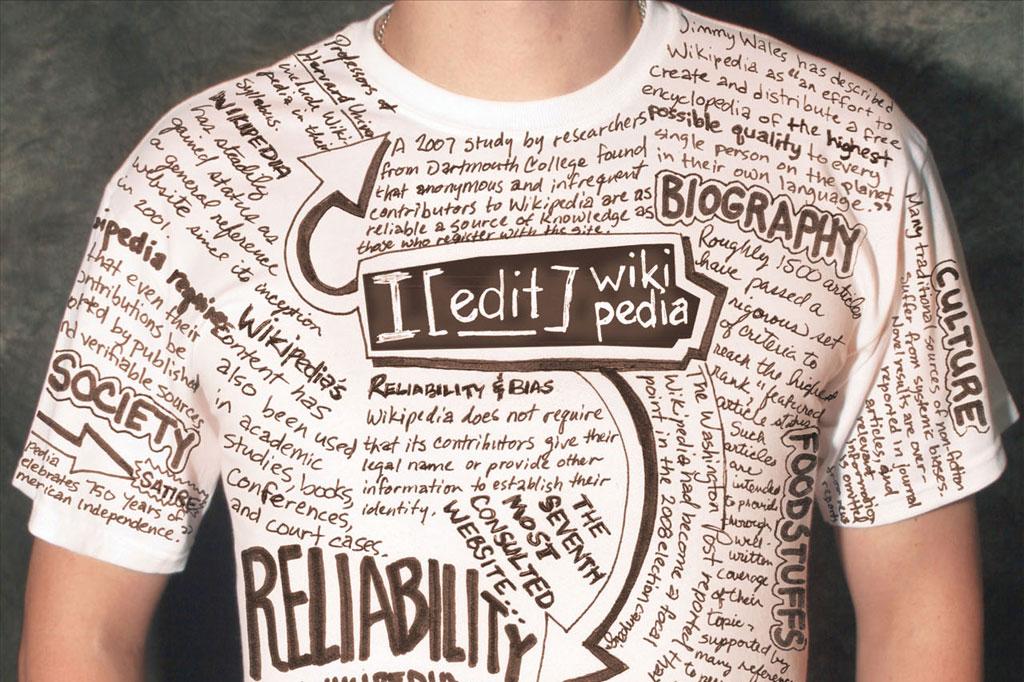Whether you trust it or ignore it, Wikipedia is one of the most popular websites in the world and accessed by millions of people every day. So would you trust it any more (or even less) if you knew people were being paid to contribute content to the encyclopedia?
The Wikimedia Foundation, the charitable organisation that supports Wikipedia, has changed its Terms of Use. Paid contributors can now make changes to Wikipedia articles so long as they clearly disclose their affiliations and potential conflicts of interest.
The website has previously not had an official policy on paid editing, despite a history of community opposition to editors who contribute for pay.
So the change in policy comes amid concerns from the Foundation about the potential damage to Wikipedia’s reputation as a free and objective source of knowledge from editors acting on behalf of a paying client or employer.
The concerns arose after the user community broke the story of its year-long investigation into large-scale editing by the consulting business Wiki-PR.
Working out of Austin, Texas, Wiki-PR employees used 250 fake accounts to create and contribute to pages about its clients. This resulted in several hundred promotional articles on Wikipedia, which the volunteer community subsequently had to remove for not meeting the encyclopedia’s quality standards.
What Is Paid Editing?
Paid editing refers broadly to anyone who receives or expects to receive compensation for their contributions to the encyclopedia.
These editors are not paid by Wikipedia or the Wikimedia Foundation. They are understood to be contributing on behalf of a third party such as an employer or client.
At its heart, paid editing seems at odds with the open user-led model of volunteer collaboration that Wikipedia employs and is famous for. Therefore, the acknowledgement by the Wikimedia Foundation of such activity in the encyclopedia is a big deal.
Critics in the community say contributions from paid editors will never be compatible with the site’s core editing policy of neutrality, or that requiring disclosure is an invasion of privacy and the freedom to edit anonymously. Supporters of the change acknowledge the presence of these paid editors is important for fulfilling the site’s mission of being the encyclopedia that anyone can edit.
A Short History of Paid Editing in Wikipedia
Paid editing has a tumultuous history in Wikipedia. In the last few years, there have been some high-profile instances of professionals whitewashing Wikipedia, known as wikiwashing. This is using a particular Wikipedia entry to further their clients’ interests, which is in violation of the site’s neutrality policy (among others).
Last year BP employee Arturo Silva was accused of providing nearly half the text for the British Petroleum article, including sections discussing the corporation’s environmental record.
The Gibraltarpedia controversy in 2012 resulted in a high-profile editor stepping down from trustee duties with Wikimedia UK after it was revealed his consultancy received fees from the Gibraltar Tourist Board.
In late 2011, UK newspaper The Independent filmed senior members of PR firm Bell Pottinger boasting of using “dark arts” to “sort” Wikipedia on behalf of governments with less-than-perfect human rights records.
It is also interesting that in all but the Bell Pottinger case, the Wikipedia community uncovered the activity.
What Does the Change Mean for Wikipedia?
The change in the Terms of Use to acknowledge paid editing highlights Wikipedia’s importance in the management of corporate reputations.
But it also highlights the importance of managing Wikipedia’s own brand as a neutral and non-profit site of encyclopedic information.
The presence of paid editors on the site raises questions about the ability of the platform to meet this goal of neutrality. Can an article written about a company by an employee of that company ever be truly objective?
The fear is that opening up the platform to any form of commercial involvement changes its nature and threatens its sustainability as a site of free and neutral knowledge.
Is Any Editor a Good Editor?
On the other hand, can the site ever claim to really represent the sum of all knowledge without input from professionals? Paid editors have the time and inclination to spend on articles that otherwise may go unimproved, or may not exist at all.
Another argument for including paid editors in the community relates to the sustainability of the platform itself. The number of active volunteer editors is declining from a peak in 2007, although the number of new articles created each day continues to grow.
It is still important to make sure that Wikipedia remains the “encyclopedia that anyone can edit” so long as paid editors play by Wikipedia’s rules.
What Does the Change Mean for Users?
For readers, the change will remain largely unseen. It serves as an extra level of control for volunteer editors, and is flexible enough that site policies can be amended to reflect local legal requirements about fraud and conflicts of interest.
It means readers should continue to approach Wikipedia for what it is - a user-led encyclopedia. If the veracity of the information you seek is important, then you may need to click past the article and head to the talk page or the edit history to get an idea of how the article was constructed. You can then judge for yourself how you view any contribution from paid editors.
For contributors, the changed terms are meant to allow easier identification of edits that may present a conflict of interest and require extra scrutiny from uninvolved parties. It is hoped this will ultimately improve the quality of the encyclopedia.
Whether amending the Terms of Use invites a new wave of commercialism is yet to be seen. Either way the amendment signals that the platform is still open – to change at the very least.
Kim Osman does not work for, consult to, own shares in or receive funding from any company or organisation that would benefit from this article, and has no relevant affiliations. This article was originally published on The Conversation. Read the original article.
